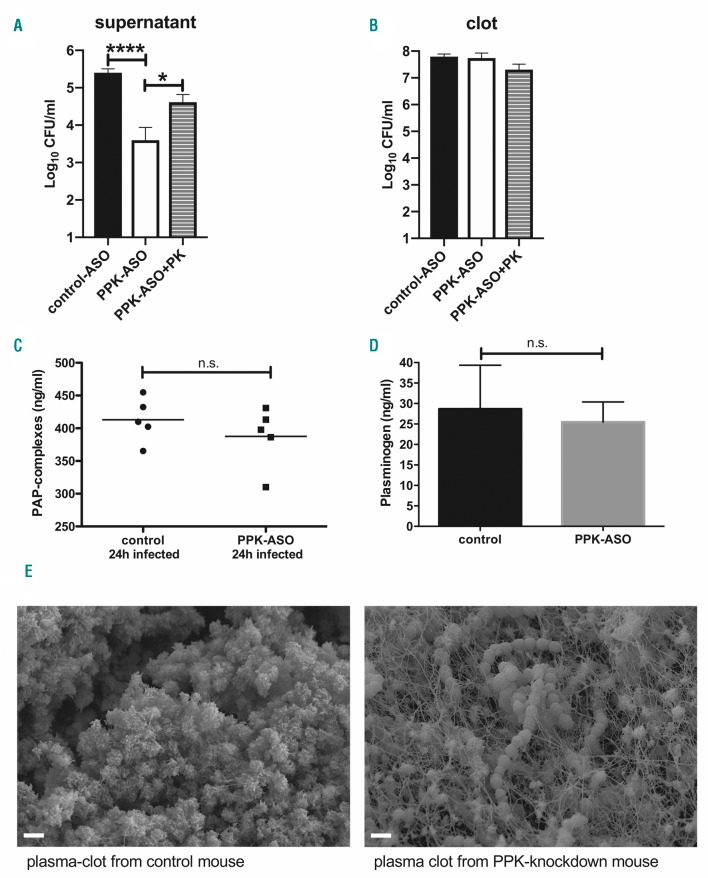Figure 6.
Antisense-oligonucleotide (ASO)-mediated plasma prekallikrein (PPK) depletion reduced bacterial escape and inhibited bacteria-triggered fibrinolysis in mouse plasma clots. (A and B) Plasma from four mice per group was pooled and mixed with 1×107 colony forming units (CFU)/mL S. pyogenes, a stable clot was induced by addition of thrombin and CaCl2, and overlaid with PBS, containing 1% plasma. After 4 hours (h), the bacterial loads in the supernatant (A) and homogenized clots (B) were determined by plating. N=4. *P=0.0323; ****P<0.0001. (C) PAP complexes or plasminogen content (D) were determined in EDTA plasma from infected control- or PPK-ASO treated mouse, n=5 per group. (E) Plasma was mixed with 1×109 CFU/mL S. pyogenes and clot formation was induced by addition of thrombin and CaCl2. After 4 h of incubation at 37°C, clots were fixed and analyzed by Scanning electron microscopy. Bars represent 2 μm. PK: plasma kallikrein; n.s. not significant.

